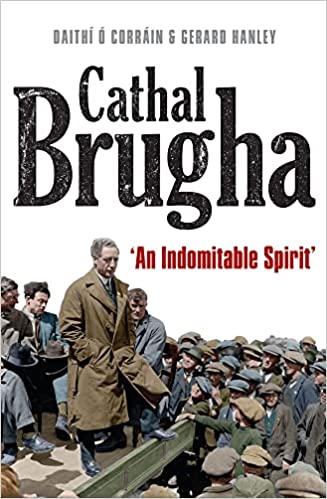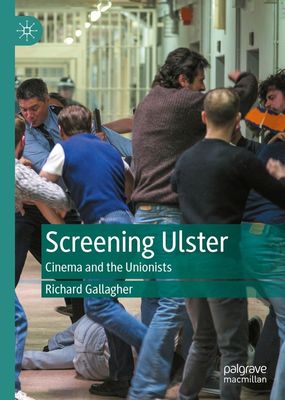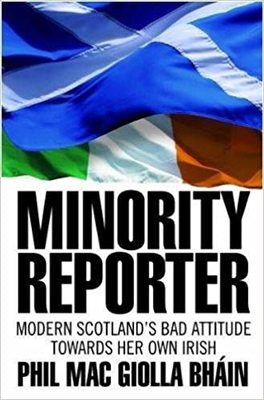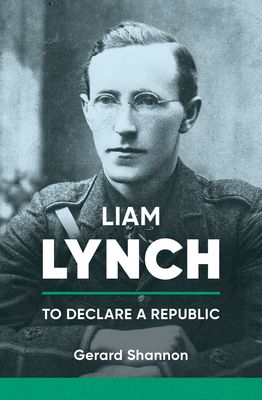Cathal Brugha: ‘An indomitable Spirit’ by Daithí Ó Corráin and Gerard Hanley (Four Courts Press, £19.95/€24.95)
IN the prologue, the authors assert that their book is not a biography. So, by those terms, I could argue that this is not a review. But let’s not turn reality on its head, nor indulge them in their self-deprecation because, given the paucity of available material, their “nuanced and multi-layered reappraisal” of Cathal Brugha’s life amounts to as good a biography as one could hope for.
They present a sympathetic portrait of Brugha which reassesses his actions and challenges the opinions of his detractors. The authors’ consistent point is that Brugha has been misunderstood. The commonly-held view of him as something of a brute has been decontextualized. They believe he has not been given his due.
One of the major reasons for the subsequent denigration of Brugha was his bitter opposition to Michael Collins. What the two had in common was their wish to see Ireland free from British control. To that end, both fought in the Easter Rising and both exhibited undoubted courage.
Brugha was severely wounded in the conflict and walked ever after with a limp. He was deeply committed to the republican cause, having taken up arms after years as a member of the Gaelic League, the Irish Republican Brotherhood (IRB) and the Irish Volunteers.
But Brugha’s modern reputation is built on largely negative interpretations of his post-Rising decisions. The defining moment was a tirade he delivered during the Dáil debate in January 1922 on the Anglo-Irish treaty.
He dared to attack the notion that it was Collins who was solely responsible for winning the war against Britain. Instead, he argued that Collins’s military reputation “was no more than a figment of journalistic imagination.” In claiming that Collins did not deserve to have been “made a romantic figure, a mystical figure”, Brugha outraged those who admired the Big Fella’s leading role during the struggle with the Black and Tans. Even some of Brugha’s anti-treaty allies thought his comments counter-productive.
A later speech in which he sought to tone down his criticism did not ameliorate the hostility he had generated. Collins and Brugha were very different personalities. The former was brash, liked a drink, smoked, swore and had little time for the church. Brugha, a devout Catholic, was an abstemious non-smoker who, unlike Collins, had an accountant’s attitude towards finances.
Their power struggle centred on the control of two military organisations: the IRB, and the Irish Republican Army, the force sanctioned by the Dáil. Collins was both president of the IRB and director of organisation for the IRA. Brugha, nominally Collins’s superior as minister of defence, and opposed to the continuing existence of the “secret” IRB, watched aghast as Collins attempted to assert his influence over the IRA. He felt his ministerial authority was consistently undermined by Collins.
As Ó Corráin and Hanley point out, Brugha guessed where this split would lead by writing: “Fighting has now been temporarily stayed, but only temporarily. I believe that, in our time, sooner or later, it will begin again.” This was six months before the outbreak of the civil war.
They also clashed over the violence in the Six Counties in which more than 600 people died. Brugha, eager to avoid civil war and concerned by the effect of partition, suggested they should go to the defence of nationalists in the north, saying he would “prefer to die by an English bullet or an Orange bullet rather than by a bullet fired by one of the men with whom we have been fighting together during the last six years.”
Personality traits aside, it was the polar positions on the treaty that ultimately divided Collins and Brugha, who refused to accept the terms of the agreement signed by Collins and his fellow negotiators.
Once the Dáil ratified the treaty and set up a provisional government for the twenty-six counties, headed by Collins, Brugha and Éamon de Valera – sticking fast to their republican beliefs – adopted an anti-treaty stance. At one point during the months of argument between the pro and anti-treaty sides, Brugha claimed Collins was working for the British government. In short, he accused him of being an agent.
They also clashed over the violence in the Six Counties in which more than 600 people died. Brugha, eager to avoid civil war and concerned by the effect of partition, suggested they should go to the defence of nationalists in the north, saying he would “prefer to die by an English bullet or an Orange bullet rather than by a bullet fired by one of the men with whom we have been fighting together during the last six years.”
His initiative came to nothing and soon after, with a heavy heart, Brugha took up arms against his former comrades. He found himself among some seventy anti-treaty republicans garrisoned in hotels along Dublin’s O’Connell Street, opposite the GPO.
Mrs Brugha demanded that only anti-treaty sympathisers should attend the funeral. De Valera, who was unable to be there, wrote of Brugha in his diary, “Our lion heart is gone”, and thought it “cruel” that he died at the hands of Irishmen.
When the buildings were subjected to an intense artillery barrage and defeat seemed certain, a defiant Brugha refused to surrender. He rationalised his likely death as being “so serious” that it might bring it home to the Irish people that the civil war should stop.
Eventually, he ordered his force to yield while refusing to do so himself. He was shot, a revolver in each hand, supposedly shouting “no surrender”. Having lost too much blood, he died of his wound in hospital, with his wife, Caitlín, at his bedside. He was 47.
Mrs Brugha demanded that only anti-treaty sympathisers should attend the funeral. De Valera, who was unable to be there, wrote of Brugha in his diary, “Our lion heart is gone”, and thought it “cruel” that he died at the hands of Irishmen.
Caitlín stayed true to the anti-treaty cause. She campaigned on behalf of prisoners, raised money for the smuggling of munitions, stood successfully as a Sinn Féin TD (topping the poll in Waterford) and refused to join de Valera’s fake republican party, Fianna Fáil, in 1926. She was disgusted at the way in which that party tried to validate its stance by appropriating her husband’s name and legacy.
She tended to emphasise Brugha’s military exploits, but the authors argue that his political contribution to the Irish revolution, such as his reinvention of Sinn Féin from being a marginal party into one that became dominant in 1918, has been overlooked.
As for Brugha’s belief that his death would terminate the civil war, that went unrealised. He was the conflict’s first high profile fatality. The next, Harry Boland, was killed some three weeks later and the third, Collins, was shot dead three weeks after that. And it is a sobering fact that the fight for an Irish Republic continues to this day.






